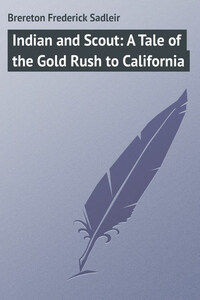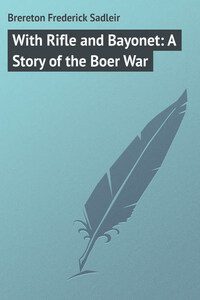Chapter One.
Philip Western
“You positively annoy me, Joseph, and make me feel more angry than I care to admit. The matter is a serious one, and I am deeply distressed. After thirteen years of the most careful bringing-up there is complete and absolute failure. It is a miserable reward. And then, to make matters worse, you laugh at me, and egg the lad on to even greater crimes!”
“Fiddlesticks, sir! Humbug! A miserable reward indeed!” was the spirited answer. “No one but yourself would admit it. He is a fine lad, though a little wild I will own; but for all that a generous, good-hearted boy. Let him alone! Don’t worry him with all these goody-goody ideas. There is plenty of time for him to settle down, and meanwhile he will come to no harm, and, I’ll be bound, will bring no discredit on you.” The speaker shook his head knowingly, and helped himself to a large pinch of snuff.
“How can you argue like that, Joseph, when you know what the lad has done?” the former speaker replied with much sternness. “I hold practical joking to be at any time disgraceful, but when one’s adopted son is one of three who actually laid a booby-trap for the mayor of this town in broad daylight, and made him a laughing-stock for all, then discreditable is the least one can say of it. It is positively scandalous.”
“Nonsense, Edward! Barrington deserved all he got. He is an odious man, and the fright those youngsters gave him will teach him to mind his own business in future, and not meddle with other people’s affairs. Serve him right, I say! Just because a lad breaks one of his windows with a catapult, and by pure accident, he gets the following half-holiday stopped for the whole school. If he hadn’t blustered so much, and looked so fierce, I’ve no doubt the culprit would have given himself up; but he was afraid of the consequences, and most naturally, too. Ha, ha, ha! It was funny! I saw his worship immediately after he had fallen a victim to the joke. He was quivering with mingled fear and rage, and the laughter of the by-standers did not help to soothe him.”
Joseph threw himself violently back in his chair, causing it to creak in an alarming manner and almost overturn, and gave vent to roars of laughter, followed by chuckles of intense amusement, produced in such deep tones that they seemed to come from the smart Wellingtons he wore. He was a stout, comfortable-looking man of middle height, with a round, clean-shaven face, which, now that he was laughing, was as red as fire and wrinkled in all directions. He had a shiny head, almost devoid of hair, and a double chin which half hid the wide collar and large bow he wore, while smartly-cut trousers and coat, a wide expanse of shirt front, and a double-breasted waistcoat, which seemed almost too small to reach across his massive chest and “corporation”, completed an appearance which made Joe Sweetman remarkable. He looked a gentleman all over, and his merry laugh and jovial manner made one certain at once that he was a general favourite.
Opposite him, seated in an uncomfortable armchair, and hugging one knee with his bony hands, was a big, gaunt man, whose heavy face and dull leaden-looking eyes seemed never to have lightened with a smile. A square chin, set off by long Dundreary whiskers, and knitted brows showed him to be a man of fixed purpose; one who, having made up his mind upon a subject of any importance, would adhere to his decision with exasperating stubbornness, refusing to be persuaded by any argument, and holding firmly to his convictions, though their falseness was apparent to everyone but himself.
A hard, bigoted man was Edward Western, and even good-natured Joe Sweetman was often within an ace of losing his temper when conversing with him. An educated man, and in his younger days an officer in a line regiment, Edward had suddenly taken it into his head that a soldier’s life was not the calling he should follow. Once convinced of this he sent in his papers, and now for years had acted as the vicar of Riddington, a town of some importance in Hampshire. A wife, holding somewhat similar views to his own, and an adopted son of sixteen completed his family, while Joe Sweetman, his brother-in-law, was so constantly at the house that he might be said to form one of the establishment.
The one great aim and object of Edward Western’s life was that his adopted son, Philip, should follow in his footsteps, and one day fill his place as vicar of the town. Fortune had decreed that he should be childless, and at first this had not been a matter for regret. But for many years the vicar of Riddington had declared to all his parishioners, when lecturing to them and advising them as to the training of their children, that by careful education they could make them what they wished. “Neglect your offspring,” he would say solemnly, shaking a warning finger at his audience, “and they will become the evil-doers of the future. They will disgrace you, and even make you almost long to disown them. But with diligence, with never-ceasing care, you will instil into their minds all that is good, and will train them to follow that profession which you have decided they shall enter. There should be no need to worry yourselves in the future as to what your sons should be. Choose now, while they are infants, and bring them up according to your wishes.”














